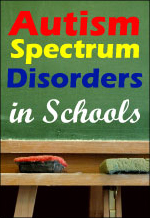New Online ASHA CEU Course @pdresources.org
 Autism Spectrum Disorder: Evidence-Based Screening and Assessment is a new ASHA-approved 3-hour online continuing education (CE/CEU) course that summarizes proven approaches to screening, assessing and diagnosing ASD in children and young adults. Epidemiological studies indicate a progressively rising prevalence trend in the number of individuals identified with autism spectrum disorder (ASD) over the past decade. Yet, compared with general population estimates, children and youth with mild to moderate symptoms of ASD remain an underidentified and underserved population in our schools and communities. The DSM-5 conceptualizations of autism require professionals in clinical, school, and private practice settings to update their knowledge about the spectrum. In addition, professionals should be prepared to recognize the presence of risk factors and/or early warning signs of ASD and be familiar with screening and assessment tools in order to ensure that individuals with ASD are being identified and provided with the appropriate programs and services. The objectives of this course are to identify DSM-5 diagnostic changes in the ASD diagnostic criteria, summarize the empirically-based screening and assessment methodology in ASD, and describe a comprehensive developmental approach for assessing children, adolescents, and young adults with ASD. Course#30-94 | 2017 | 49 pages | 20 posttest questions
Autism Spectrum Disorder: Evidence-Based Screening and Assessment is a new ASHA-approved 3-hour online continuing education (CE/CEU) course that summarizes proven approaches to screening, assessing and diagnosing ASD in children and young adults. Epidemiological studies indicate a progressively rising prevalence trend in the number of individuals identified with autism spectrum disorder (ASD) over the past decade. Yet, compared with general population estimates, children and youth with mild to moderate symptoms of ASD remain an underidentified and underserved population in our schools and communities. The DSM-5 conceptualizations of autism require professionals in clinical, school, and private practice settings to update their knowledge about the spectrum. In addition, professionals should be prepared to recognize the presence of risk factors and/or early warning signs of ASD and be familiar with screening and assessment tools in order to ensure that individuals with ASD are being identified and provided with the appropriate programs and services. The objectives of this course are to identify DSM-5 diagnostic changes in the ASD diagnostic criteria, summarize the empirically-based screening and assessment methodology in ASD, and describe a comprehensive developmental approach for assessing children, adolescents, and young adults with ASD. Course#30-94 | 2017 | 49 pages | 20 posttest questions
- CE Credit: 3 Hours
- Target Audience: Psychologists | Counselors | Speech-Language Pathologists | Social Workers | Occupational Therapists | Marriage & Family Therapists | Nutritionists & Dietitians | School Psychologists | Teachers
- Learning Level: Intermediate
- Course Type: Online
ASHA credit expires 2/20/2020. ASHA CEUs are awarded by the ASHA CE Registry upon receipt of the quarterly completion report from the ASHA Approved CE Provider (#AAUM). Please note that the date that appears on ASHA transcripts is the last day of the quarter in which the course was completed. Professional Development Resources is also approved by the Florida Board of Speech-Language Pathology and Audiology, the Ohio Board of Speech-Language Pathology and Audiology, and is CE Broker compliant (#50-1635). AAUM5127














 This course is offered for
This course is offered for 










